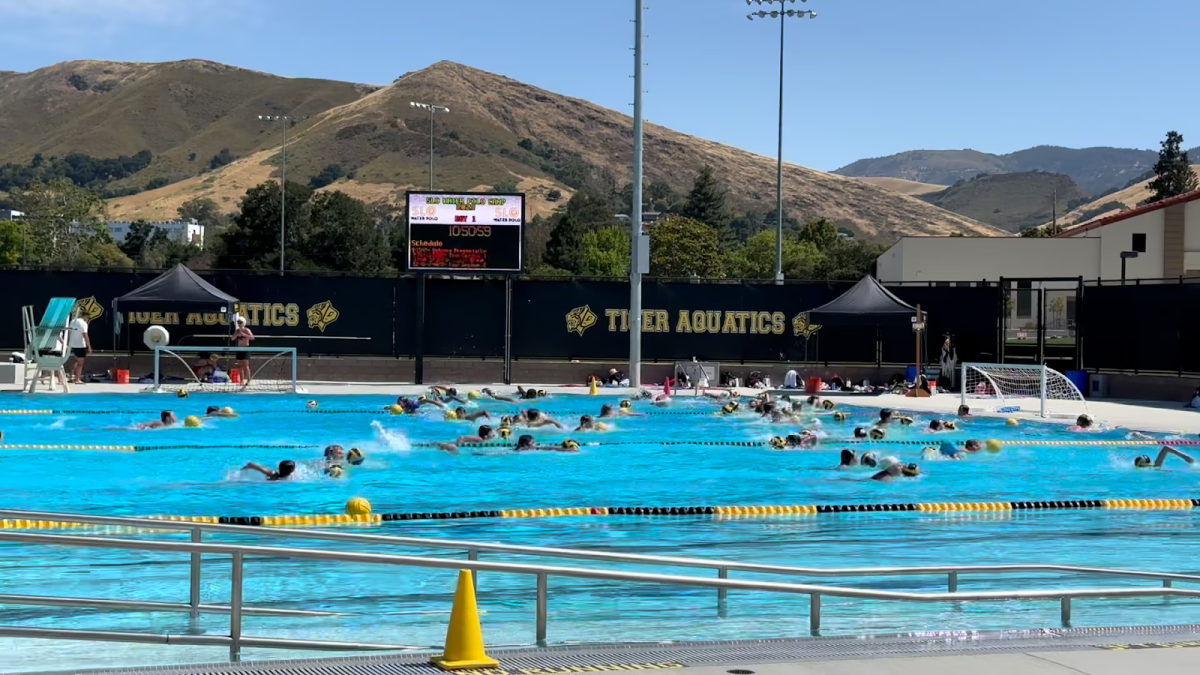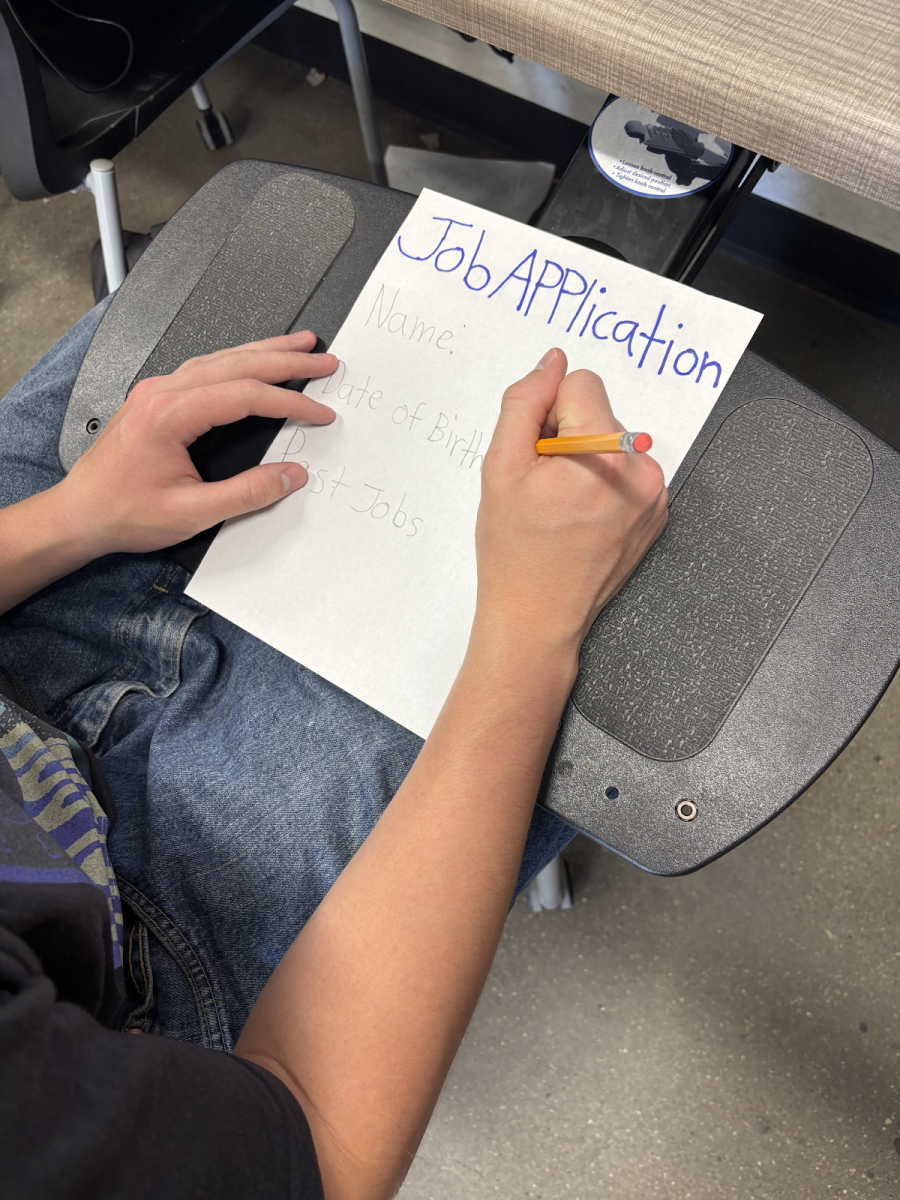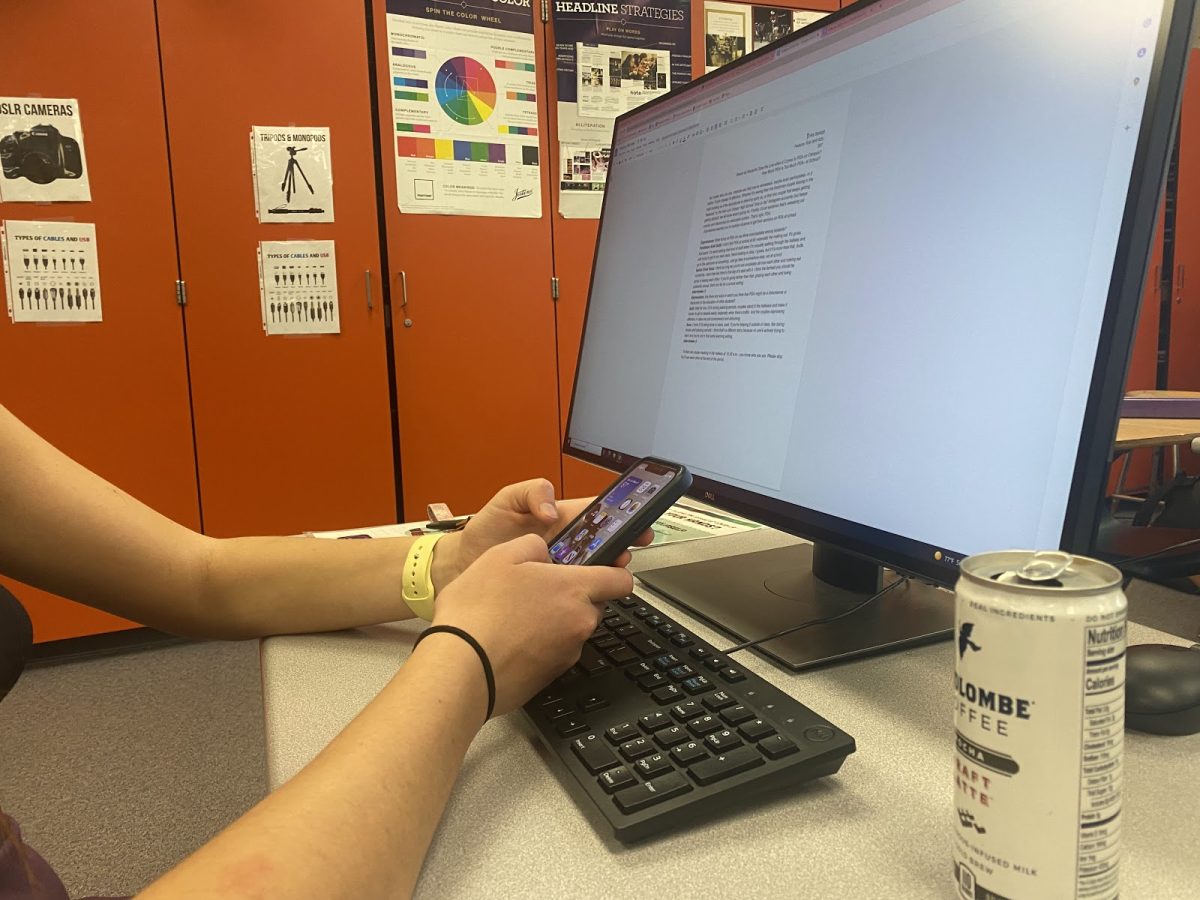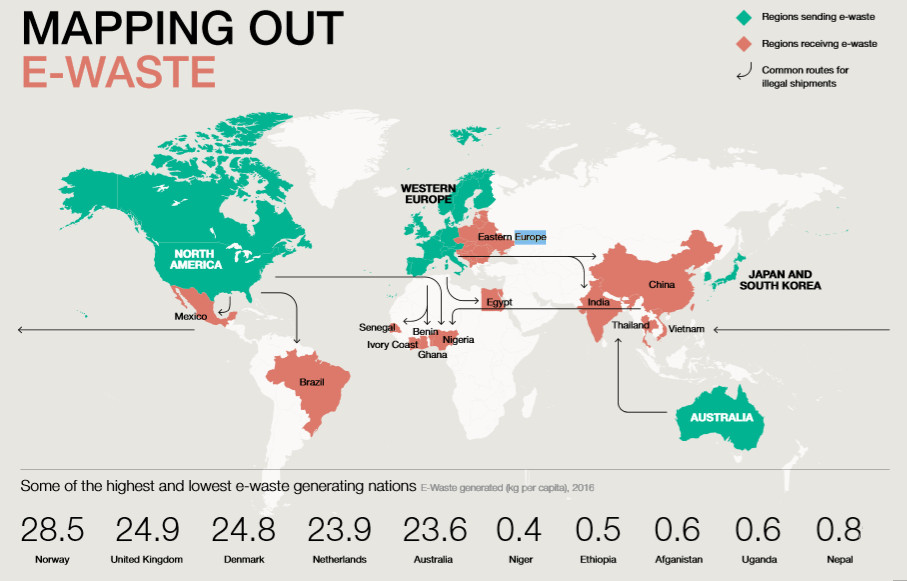Photo courtesy of junior and reporter Mia Clifford
COVID-19 has socially plagued our society. With just a short walk down the halls of San Luis Obispo High School, you will see students glued to their phones. Uninterested in the world around them, students have evolved into restless zombies, lacking basic communication skills.
Checking their phones for a new notification has become a tempting and necessary fix, something many students feel they can’t live without. Students who rely on their phones have been sucked deeply into an alternate reality. The lines between real life and online satisfaction are becoming blurred. Is there a way to separate these two worlds before it’s too late?
95 percent of teens in the United States own or have access to a smartphone. There is a direct correlation between mental well being and excessive phone use.
Psychology teacher Chad Timm remarks on his thoughts regarding the impacts of technology on students.
“It is very difficult for the adolescent brain to turn down the volume on the idea of everyone. ‘What is everyone thinking? What is everyone doing? What does everyone think of me? What is everyone expecting me to do?’. I think that social media manipulates that. It hooks you with that idea of everyone and drags you back again and again to social media,” said Timm.
Many students are conscious of the impact social media and phone usage has on their life, and are actively trying to reduce it.
“Recently I’ve cut it down a bit. I would say my daily screen time is around four to six hours,” said sophomore Xavier Clements.
Similarly, sophomore Samantha Whitehead said that her screen time was around four hours a day.
Screen time, specifically social media use, is impacting SLOHS students heavily. Timm gave his psychology students an assignment to reduce or delete their social media, in hopes of observing an increase in well-being, as measured by a survey.
“We’re running a psychological experiment. The hypothesis of the experiment was that reducing time spent on social media will result in increased sense of well being. Almost all the groups collected data on well being before the experiment. Then the groups gave up social media or at least reduced it heavily for five days in a row and then took the same survey again on well-being,” said Timm.
Clements does not use most social media like Instagram and Snapchat, and spends most of his screen time browsing Youtube.
“I don’t use social media. I do text with people quite a lot. But I actually find it easier to talk face to face rather than texting. For an important conversation, I’d rather think about it and then have it face to face because then I can actually get the seriousness of the topic across,” said Clements.
For SLOHS students who are conscious of the social impacts having a phone entails, imagining life without a device seems undesirable.
“[Without my phone] I think I’d be a lot less connected with my friends, and I think I would have a lot less to do,” said Clements.
For others, they feel that eliminating their phone would improve their well being.
“If I didn’t have a phone I’d probably do more things and have four hours more of my life everyday” said Whitehead.
The data from Timm’s survey stands true. After a week of removing social media, the results were in.
“My hypothesis was proven correct by almost all of the groups. Almost all of the group’s data pointed to the fact that there was an increased sense of well-being with less social media. The studies are pretty clear: social media causes reduced self esteem and reduced the overall sense of well-being in teenagers. I would encourage everyone to reduce screen time and particularly time spent on social media” said Timm.
SLOHS students have noticed the negative effects that using their phones excessively has on them. They are making choices such as reducing screen time to avoid being impacted.
Source: pewresearch.org
































